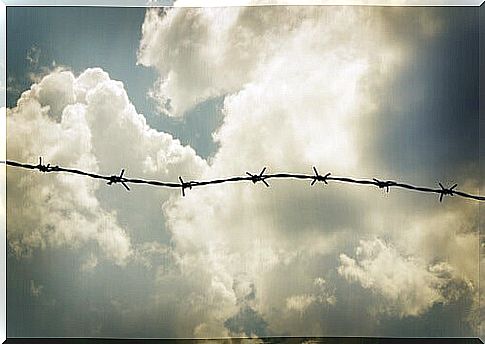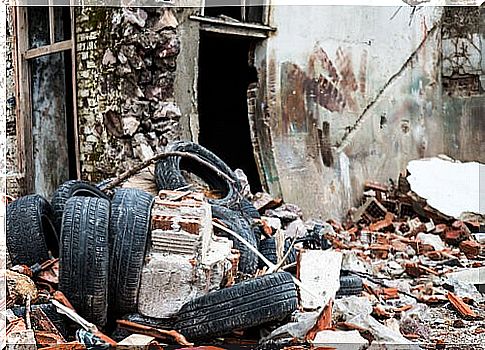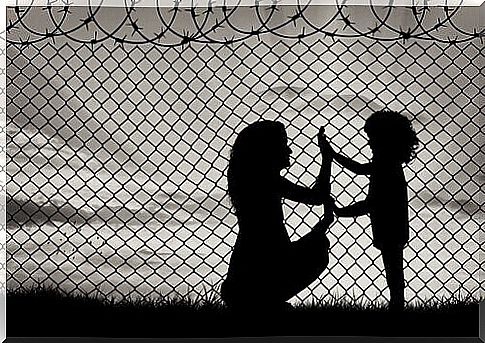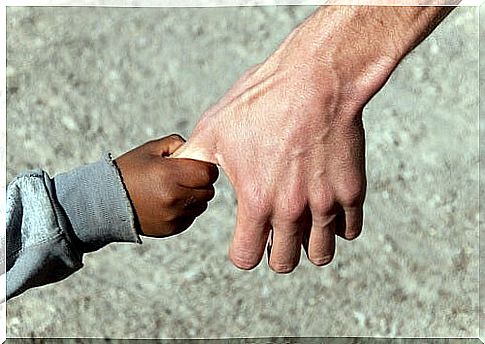When Living Is The Only Way Out

It doesn’t often happen to stop and think about how rich the concept of “living” is and how many emotions, thoughts and options it encompasses. In the space of a simple day, we have the opportunity to get angry, motivated, rejoice, sadden, love, be loved, go, return, do and undo.
Perhaps it will seem like a foregone conclusion. Today we have access to tools that transmit so much information to us that it is impossible for us to process it. Precisely for this reason, the mere fact of having them has lost importance. On the contrary, being able to manage our time so that we can process everything has become of paramount importance.
But what if the only option we had to think, feel or do was to live? It’s not one of the activities we mentioned in the list of things we can do throughout the day and you may not have even noticed it. But living, understood as “continuing to exist” or “staying alive”, is an activity so obvious for us that we do not even realize it.
In fact, however, a large part of the world population gets up and goes to sleep every day with this fixed thought. The problem of survival is at risk for a set of causes greater than those who, like us, are used to well-being can understand. Hunger, poverty, deadly disease and, of course, war.

The dilemma of life
Let’s take this last factor as an example. Let’s think of the civil war in Syria. We are in 2016, and it has already been more than 5 years since Syrian civilians started dying indiscriminately. Broadly speaking, we know that more than 250,000 lives have been broken today.
Although our sensitivity is inhibited by the rain of similar news that we are bombarded with every day, in the society where these lives have been broken, each of them has a huge impact, on all levels. It is impossible to put into words the extent of the suffering of the victims and those who survived the conflict.
All of them, however, were faced with the same simple dilemma: to live or not to live? Will I still be alive tomorrow morning? Will I live long enough to see my daughter grow up? Logical, humane and even necessary questions in a situation where up to 512 bombs per day fall at an irregular rate on the same village.
Yet, contrary to all predictions, the survivors manage to keep themselves lucid. They don’t lose their minds. They struggle to stay alive, both mentally and physically. And not only that: they also try to find a “sense” (if it can be defined as such) to the conflict, taking part in it.
They do this by abandoning their homes to emigrate, fighting resistance even when they have few guarantees, participating in social support projects for the most needy groups (job creation workshops for women who have never worked, medical assistance in hospitals, information, documentation, etc.).
They keep themselves alert, with their nerves like skin, trying not to collapse and to carry on those few habits that the war has not been able to destroy. They struggle to support their families. The more I inquire and get closer to this reality, the stronger I feel a question resounding in my head that does not give me peace: how can they do it?

How is it possible to live?
It is difficult to imagine how human beings can survive in similar situations. There are several options from which these altruistic behaviors could arise: resilience , intense fear or the social feeling of unity in the face of adversity. We could also find an explanation in the plastic capacity of the human being to make situations that seem impossible to normalize “normal”, such as death.
All these options, drawn from psychology, and many more that we have not mentioned, could be valid starting points to begin to understand how the mind of a person who finds himself in similar situations works. But there is another thing that we cannot forget, and which is intrinsic to the human being: the absence of options, besides life.
It may sound insensitive or even hypocritical, said by those who live in well-being, but it is true. Let’s make this point clear: why do we say these people have no other options? That’s not true, they would always have the option of doing nothing, waiting and seeing if they die or if someone else will save them. Ideally, they could. And it would also be logical, given the circumstances.
However, when we say they have no other options, we are referring to the fact that human nature has an innate instinct for survival. An instinct that leads us to make the best use of all our mental and physical resources in order to live. It leads us towards the struggle and the search for meaning. We have seen this in many examples of people who have survived extreme situations and who have told their experience, as well as in authors and psychoanalysts such as Viktor Frankl, Erich Fromm or Boris Cyrulnik, among others.

Something in common
Here, then, is one thing that we certainly have in common with those who live in these situations: human nature. This nature, which leads us to feel fear, to be resilient, to normalize, to struggle or to escape is the same that makes our days full of emotions, thoughts and options. But, above all, it is what drives us to want to live .
We can live alienated from the outside world, locked in a bubble where no information reaches us. We can decide to disinterest and do nothing in the face of this and many other conflicts or to do everything. But in the end, we cannot help but use the infallible resource of our humanity; to look at the world with the eyes of a human being; to feel like a human being. And most importantly, to learn like a human being. Learn that if we are not capable, if there is no way out, if it seems that all hope has gone up in smoke, we will always have the option to live.









